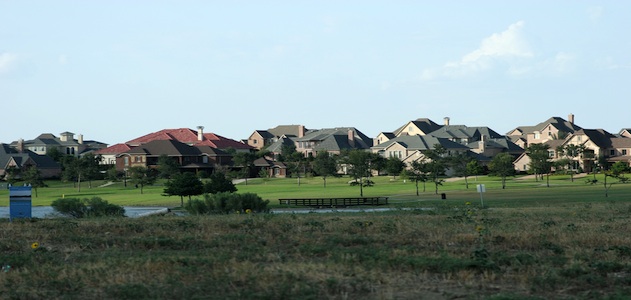Residential property sales continued to edge higher in September, as an increase in investor purchases boosted transaction volumes, RealtyTrac reported.
The latest RealtyTrac report, which covers the sale of single-family homes, condominiums and townhomes, found that residential properties sold at an estimated annualized pace of 5.6 million in September, up 2% from August and up 14% from September.
Meanwhile, institutional investors, or firms purchasing 10 or more properties, accounted for 14% of all sales in September, up from 9% in August and also 9% growth from September 2012. September posted the highest percentage of institutional investor purchases of any month since RealtyTrac began tracking the transactions in January 2011.
"The housing market continues to skew in favor of investors, particularly deep-pocketed institutional investors, and other buyers paying with cash," said Daren Blomquist, vice president at RealtyTrac.
In addition, the median sales price of all residential properties – including both distressed and non-distressed – in September was $174,000, up 1% from a revised $172,000 median in August and up 6% from a $164,500 median price the same period a year ago.
The median price of a distressed residential property in foreclosure or bank owned hit $112,000 in September, 41% below the median price of $189,000 for a non-distressed residential property. Distressed sales accounted for 25% of all September sales, rising 18% from all sales a year ago.
"Distressed sales remain persistently high, particularly short sales," Blomquist said. "Markets with the biggest increases in short sales tend to be those where either foreclosure starts or scheduled foreclosure auctions have rebounded in the last 18 months — translating into more motivated short sellers — or those with a still-high percentage of underwater homeowners with negative equity.”
Focusing on the metro areas with a population of 1 million or more, the places with the highest percentage of institutional investor purchases in September were Atlanta, Las Vegas, St. Louis, Jacksonville, Fla. and Charlotte, N.C.
“While the institutional investors are pulling back their purchases in many of the higher-priced markets — places like San Francisco, Washington, D.C., New York, Seattle and Sacramento — they are continuing to ramp up purchases in markets where median prices are still below $200,000 — places like Jacksonville, Atlanta, Charlotte, St. Louis and Dallas,” Blomquist added.
But despite the number of sales being lifted through investor demand, Mark Palim, vice president of applied economics and housing research at Fannie Mae, said, “All that money coming in has helped to stabilize many markets. If you look back over the last couple years, it has helped some of the largest hit markets. It is a good thing not a bad.”
“By and large the inflow is a positive thing, recovery in house prices has been good in home equity and good for the economy. Investors have definitely contributed to the recovery, what you are seeing is housing returning back to being in local markets again,” Palim concluded.





